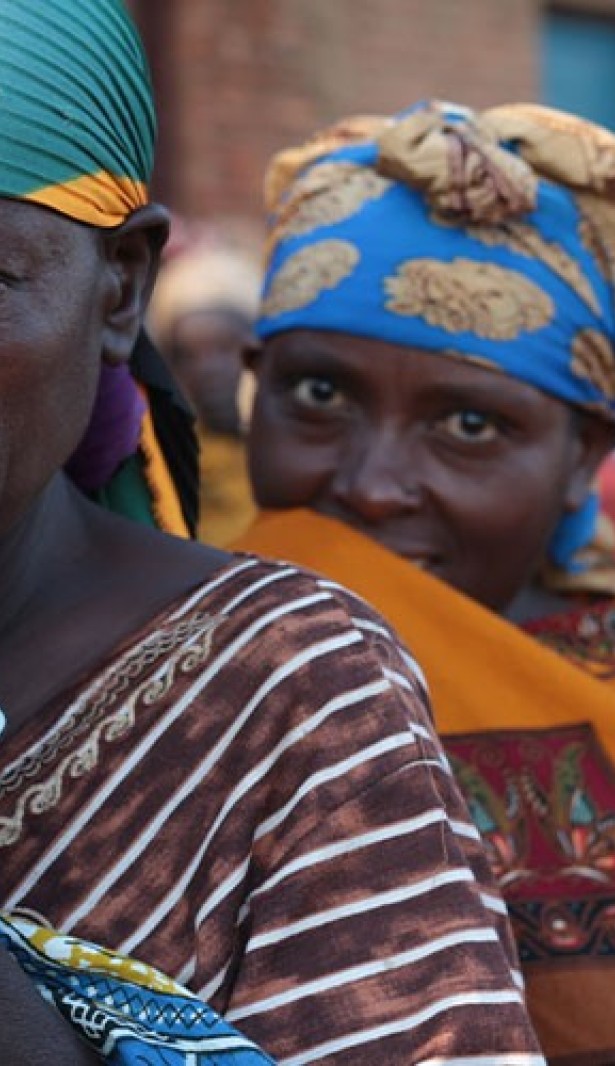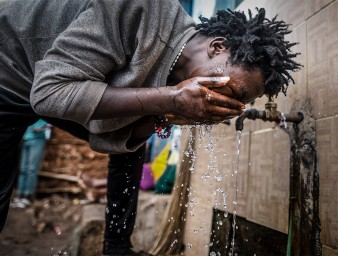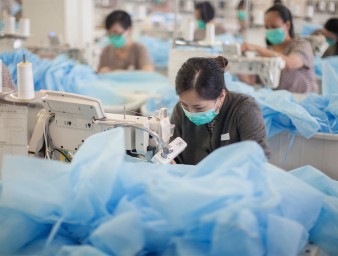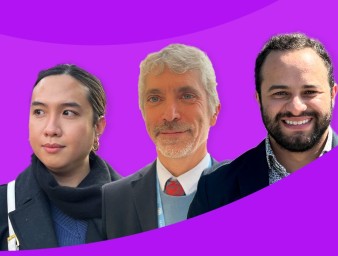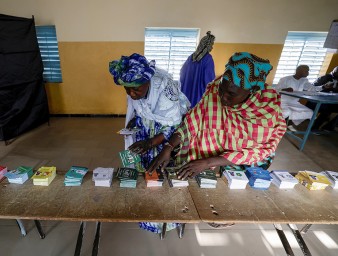No human rights progress despite new presidency, Burundi inquiry finds
23 September 2020
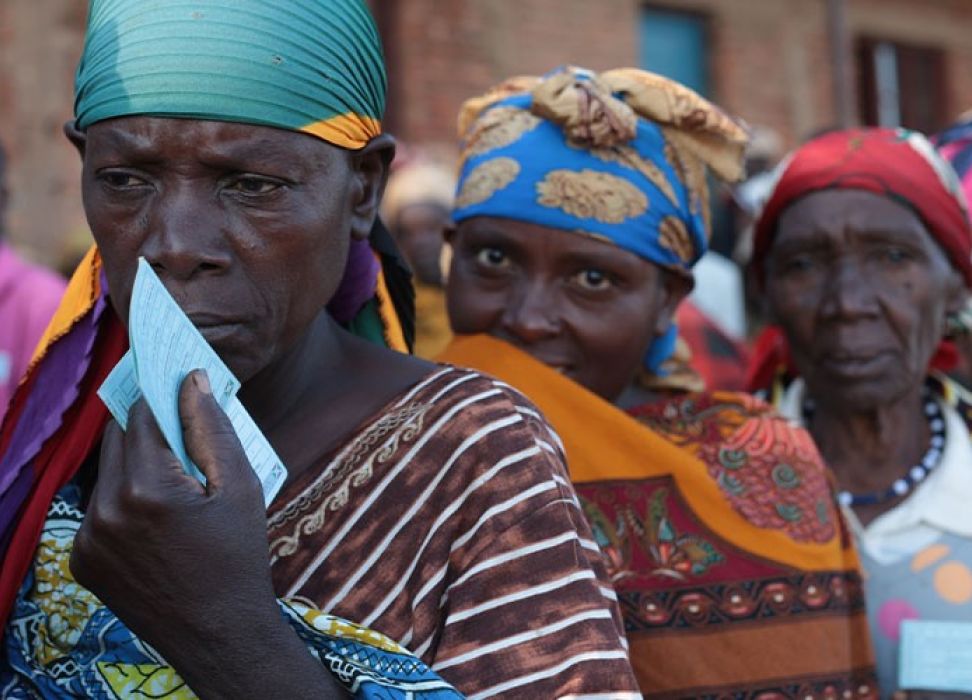
The Commission of Inquiry on Burundi outlines the serious human rights violations occurring in the context of the 2020 elections, including summary executions, arbitrary detentions and arrests, torture and sexual violence.
In its final report to the Human Rights Council, the Commission of Inquiry on Burundi documented numerous serious human rights violations that had occurred from 2019 in the context of the 2020 presidential, legislative and local elections - including summary executions, arbitrary detentions and arrests, torture and sexual violence.
The Commission was established by the UN Human Rights Council in September 2016 to conduct a thorough investigation into human rights violations and abuses committed in Burundi since April 2015, when the contested, President Nkurunziza, decided to run for a third term.
That decision sparked massive street demonstrations which were met with a severe crackdown and a political crisis that has never been properly resolved. Despite the apparent calm that returned to the streets, targeted and serious human rights violations have continued since that day. Among the acts documented by the Commission are some that may constitute crimes against humanity.
Thus, the mandate of the Commission has been renewed each year since then as a contribution to the fight against impunity in that country. In that regard, the Commission was also mandated by the Council to identify alleged perpetrators of human rights violations with a view to ensuring full accountability, and formulate recommendations on steps to be taken to guaranteeing that the authors of these violations are held accountable.
Four years of investigations
During the past four years, the Commission has been the only independent international mechanism to document, monitor, and report on human rights violations in Burundi. Its report is based on more than 1,500 testimonies collected since the start of its work, including more than 300 during the current term of office, despite the constraints related to the COVID-19 pandemic that have resulted in the cancellation of some field missions.
“We have been following events very closely to see whether the new Government would reverse the destructive path taken since 2015. We made some very concrete suggestions when we last updated the Human Rights Council in July. But so far we see little positive changes since President Ndayishimiye assumed office,” said Doudou Diène, Chairperson of the Commission.
“The democratic space remains very narrow, impunity persists, and there is no indication that the level of human rights violations has abated under the new Government,” Diène added. “Some individuals subject to international sanctions for their alleged responsibility in human rights violations in 2015 have actually been appointed to senior positions in the Ndayishimiye administration.”
The perpetrators of the electoral-relation violations, the Commission has found, were seeking to deprive the main opposition party, the Conseil national pour la liberté (National Freedom Council, CNL), of any chance of winning the election. These violations were mainly committed by members of the Imbonerakure youth league of the ruling party and by local officials who continue to enjoy nearly total impunity.
Agents of the Service national de renseignement (National Intelligence Service, SNR) and police officers often participated in or supported such violations or, in the case of the police, sometimes stood by and allowed the perpetrators to act.
The report further highlights that the vast majority of victims have been deprived of their right to an effective remedy due to the lack of independence and impartiality of the judiciary, which is still plagued by corruption. The judiciary has also taken part in the repression against the political opposition and has also been used to censor the press and human rights defenders.
Men and boys victims of sexual violence
The Commission took an in-depth look into the issue of sexual violence committed against men in Burundi since the beginning of the crisis, mainly in the context of their detention by the National Intelligence Service. “They undressed me [...] because my hands were still [tied up]. Then they [...] tied my testicles [with a rope] and the rope was attached to a can filled with sand. Then [they told me] to stand up and walk with the can [hanging],” one of the many victims said, describing the abuse he endured.
Others recounted beatings with sticks, kicking, burning, being injected substances, raped, and being forced to perform sexual intercourse with other detainees as means to punish and extract confessions, by inflicting as much pain as possible. As a result, many victims have also suffered the physical and psychological aftereffects, or even social isolation.
Further, men and boys survivors of sexual violence victims reported having received little to no specialised support and assistance. In a society where prejudices and taboos related to sexuality, manliness and rejection of homosexuality persist, these survivors fear being stigmatised and ostracised by their communities.
A special focus on children
The Commission also focused on the serious violations of human rights committed on children and adolescents, a stratum that represents half of the Burundian population.
Since the beginning of the crisis in 2015, children and adolescents have regularly been victims of violations of their human rights. They were specifically targeted for forced recruitments into the ruling party’s youth league, the Imbonerakure or, in the case of younger children, into the “Little Eagles”.
Some children were harmed when other family members were the real targets and the disappearance or murder of a family member, especially a father, has also left families unable to provide for children’s basic needs.
One child survivor recounted her family’s gruesome ordeal to the Commissioners. “My father was a member of the MSD. […] After the demonstrations, my father wanted to remain, because he did not think he would be targeted, but people were still searching for him,” the child said. “In the evening, we saw people who came and took my father.
The others stayed and raped my mother, and then they killed her. After that, they seized us and they raped us. […] We were beaten because of our screams.”
The Commission found that children have been denied their rights to education, health, food and family life. They have been forced to flee the country, sometimes without their family, left severely traumatized by the violations they experienced or witnessed and in need of appropriate care.
Economic malpractices underpin the economy
In fulfilling a new dimension of its mandate to report on “the economic underpinnings of the State”, the Commission has found that corruption and illicit financial flows have a negatively impacted the enjoyment of human rights in Burundi. The effects economic malpractices have been profound; they have reduced the State's resources and affected all human rights in a country where seventy-four per cent of the population lives in multidimensional poverty.
“According to our findings, the level of corruption appears to be so widespread that every organization, company, or individual bringing funds to Burundi should be exercising the utmost due diligence,” said Commissioner, Françoise Hampson.
A cause still for concern
Although a political transition is currently under way, the Commission highlighted in its report the eight remaining common risk factors and far-reaching reforms that are required to mitigate those risk factors as well as recommendations to improve the human rights situation in Burundi in the medium and long term. The Commission also urges the international community to remain concerned about the situation in Burundi.
“The transfer of power offers an opportunity for re-engagement with the UN and the international community and to commit to a pathway of change based on respect for human rights, fundamental freedoms, democratic principles and the rule of law,” Doudou Diène said.
“We sincerely hope that the new Government will take concrete actions to mitigate the risk factors, most importantly by allowing civil society, the media and the opposition to effectively play their crucial roles in a democratic society,” he added. “But if that role can only be played at the risk of life or liberty, the international community must continue to be very concerned.”
23 September 2020
